
Latest Coronavirus Disease COVID 19 News and Research
How to sleep better during coronavirus lockdown
We are all facing restrictions in a bid to minimize the transmission rate and impact of COVID-19, but there is no denying that life in lockdown is hard.
Dispatch from a country doctor: Seeing patients differently in the time of coronavirus
Patients would often stop by River Bend Family Medicine just to gab with staff at the front desk or bring baked goods to Dr. Matt Hahn.
Inside meals on wheels’ struggle to keep older Americans fed during a pandemic
In the best of times, Meals on Wheels faces the herculean task of delivering 200 million meals annually to 2.4 million hungry and isolated older Americans.
Nursing homes have thousands of ventilators that hospitals desperately need
As the number of COVID-19 patients climbs and health officials hunt for ventilators to treat them, nursing homes across the United States have a cache - about 8,200 of the lifesaving machines, according to data from the Centers for Medicare & Medicaid Services.
Successful MERS vaccine in mice may hold promise for developing vaccines against coronavirus
Researchers at the University of Iowa and the University of Georgia have developed a vaccine that fully protects mice against a lethal dose of MERS, a close cousin of the SARS-CoV2 coronavirus that causes COVID-19.
Cancer patients face treatment delays and uncertainty as coronavirus cripples hospitals
The federal government has encouraged health centers to delay nonessential surgeries while weighing the severity of patients' conditions and the availability of personal protective equipment, beds and staffing at hospitals.
Study: One-third of younger people in São José do Rio Preto lack antibodies against measles
In São José do Rio Preto, state of São Paulo (Brazil), almost a third of the population aged 10-40 are estimated to have no antibodies against measles, according to a new study that tested 981 people in various age groups.
How do viruses mutate and jump to humans?
Zoonotic spillover events like the current novel coronavirus pandemic present threats to human health. But what is zoonotic spillover and how do they occur?
New mathematical model can help improve future epidemic predictions
As the world grapples with the COVID-19 pandemic, a new mathematical model could offer insights on how to improve future epidemic predictions based on how information mutates as it is transmitted from person to person and group to group.
Despite public health challenge, tobacco use continues to be overlooked
The number of tobacco smokers is projected to remain at around 1.1 billion until at least 2025, with 80 per cent of the world's smokers living in low- and middle-income countries (LMICs).
Research reveals a potential 'chink in the armor' of SARS-CoV-2
The scientists from Scripps Research, reveal a likely vulnerability or weakness of the coronavirus. An antibody, called CR3022, recovered from a survivor of the SARS outbreak in 2002, has shown a potential vulnerability of the novel coronavirus.
Linguistics experts call for alternative ways of talking about Covid-19
Two Lancaster University linguistics experts have launched an appeal for examples of inspirational non-war-related metaphors which encourage people to stick to the rules while enabling them to have hope.
Tiger with SARS-CoV-2 infection demostrates reverse zoonosis
Some viruses come from animals and jump to humans to cause disease. In the case of the novel coronavirus, now known as the severe acute respiratory syndrome coronavirus 2 (SARS-CoV-2), it is thought to have come from bats, jumped to an intermediate animal host, and then onto humans. But can the virus leap from humans to other animals?
Antiparasitic drug Ivermectin kills coronavirus in 48 hours
Around the world, scientists race to develop a vaccine or treatment against the coronavirus disease (COVID-19), caused by the severe acute respiratory syndrome coronavirus 2 (SARS-CoV-2). Now, a team of researchers has found that a drug already available around the world can kill the coronavirus in a lab setting in just 48 hours.
Researchers create algorithm to protect surgical team members from COVID-19
Researchers from Stanford University's department of surgery have created an algorithm that aims to protect operating room team members who perform urgent and emergency operations from Coronavirus Disease 2019 (COVID-19) and rationally conserve the personal protective equipment they wear.
Rush participates in clinical trial to test remdesivir as potential treatment for COVID-19
Rush University Medical Center is participating in a new clinical trial to test the effectiveness of the drug remdesivir in the treatment of coronavirus disease 2019 (COVID-19). This disease currently has no approved treatment.
Texas A&M chemists focus on searching for drugs to treat COVID-19
In the wake of the novel coronavirus pandemic, Texas A&M University chemist Wenshe Ray Liu and his research team have focused their lab solely on searching for drugs to treat COVID-19.
New website provides updated information on antiviral options for COVID-19
The website, created by medical professionals from the Norwegian University of Science and Technology (NTNU) and St Olavs Hospital can be found at https://sars-coronavirus-2.info/.
Mount Sinai launches web-based app to capture symptoms, spread of COVID-19 in New York City
A team of data scientists, physicians, and engineers across the Mount Sinai Health System has come together to launch STOP COVID NYC, a web-based app to capture the symptoms and spread of COVID-19 in New York City--currently the epicenter of the nation's largest outbreak.
New antiviral drug could change the way doctors treat COVID-19
Scientists are hopeful that a new drug -- called EIDD-2801 -- could change the way doctors treat COVID-19. The drug shows promise in reducing lung damage, has finished testing in mice and will soon move to human clinical trials.


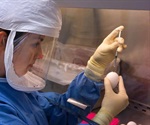

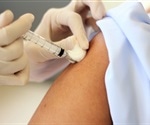
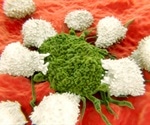
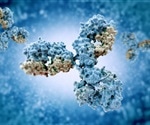



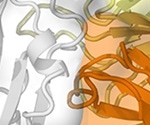


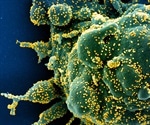

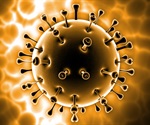
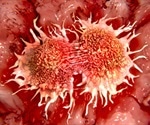

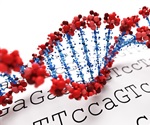
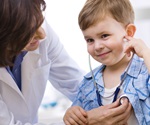
































No hay comentarios:
Publicar un comentario